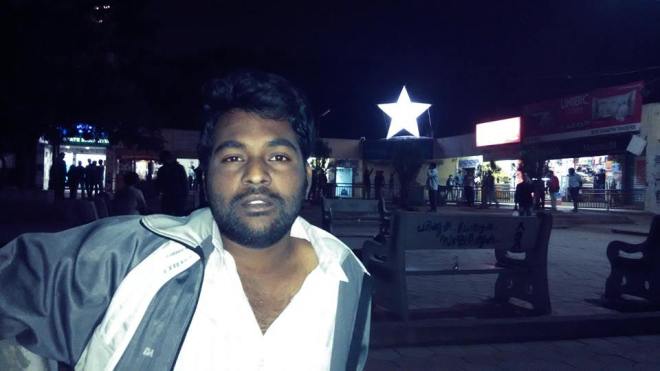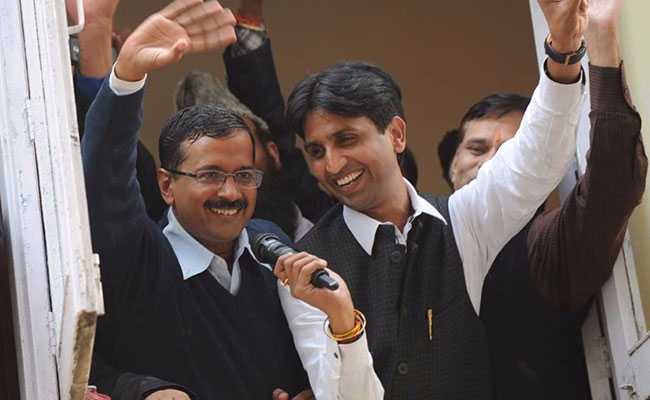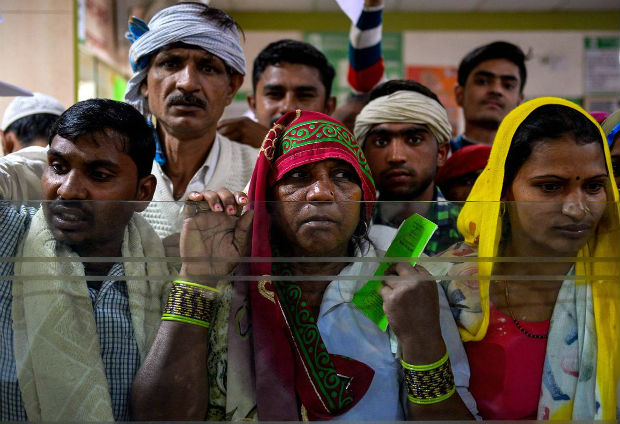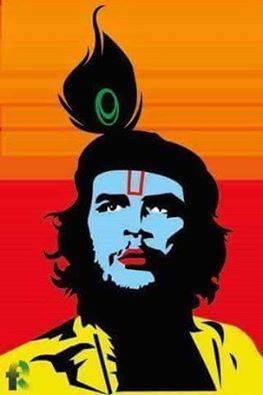
The suicide of Rohith Vemula is being met with two kinds of responses – while the Dalit and Progressive sections are calling it an ‘institutionalized murder’, where a Dalit boy was driven to suicide by the administration; the other response paints it as an individual act where caste had no role to play nor could anyone be blamed for it. One must not politicize a tragedy goes the refrain. The Union Minister for Human Resource Development seems to be of the latter view, as she repeated again and again that we should not make this an issue of caste discrimination, not now that we are in 2016.
So was it an act of a distressed individual who happened to be a Dalit or an act caused because of caste discrimination? In other words, was it a political act? To answer these questions one needs to examine Hindutva’s approach to identities and caste within its larger project of Hindu Nationalism.
Why such keen interest?
The question we must ask is: If this was just a regular skirmish between students; why was the MHRD, which has the herculean responsibility of educating millions of Indians, so interested in disciplining these five boys in the entire country? What explains this special attention to these students?
In the course of this hearing two Union Ministries got involved. Bandaru Dattatreya, MoS Labour and MP from Telangana personally wrote to Smriti Irani, MHRD, Government of India, to take cognizance of the matter and ever since the MHRD followed this case keenly with the administration with a series of letters being sent from the highest authority urging the administration to act in this case.
The anti-national Dalits: The Political Context of Rohith’s punishment
Bandaru Dattatreya in his letter to the HRD Minister calls Rohith and his friends anti-national because they protested against the death penalty awarded to Yakub Memon. Dattatreya wrote:
“Hyderabad University … has become a den of casteist, extremist and anti-national politics. This could be visualized from the fact that when Yakub Memon was hanged, a dominant student’s union, that is, the Ambedkar Students’ Association has held protests against the execution”
Abolition of capital punishment is a legitimate debate which has been going on across the world. Even if we overlook the difficult moral question of giving the State the legitimate power to take the life of a citizen; the glaring inconsistencies in the awarding of death penalties in the recent past in India; the proven fact that it is not a deterrent in stopping violent crime and that majority of the civilized world has done away with the penalty; should have been reasons enough to question capital punishment. But according to Mr. Dattatreya, organizing and protesting for the abolition of death penalty, which it must be noted, Babasaheb Ambedkar was himself against, was an anti-national act for which these students needed to be punished.
Don’t talk about caste before we gain independence if you are a nationalist –
This is not the first time that Dalits are being labeled as anti-national. Even during our anti-colonial struggle, Dr. Ambedkar and many non-brahmin, anti-caste leaders were accused of being anti-national. At the time the mainstream nationalist discourse asked the Dalits to overlook the violence, discrimination and humiliation inherent in the caste system; and unite to overthrow the British. However, the British legal system of equality before the law was liberating for the Dalits as opposed to the codes governing the Hindu society; where the Dalits were treated as inferior and impure by accident of their birth – something which Rohith also refers to in his suicide note – and there was no scope for equality or justice. So the non-brahmin and Dalit movement kept on petitioning with the British Raj, until untouchability eradication and the violence of the caste system was acknowledged as an evil by the mainstream nationalist movement led by Congress.
Even after this acknowledgement, while the non-brahmin movement and the nationalist movement could build a strategic consensus on the goal of attaining independence, it was not without disagreements and debates. So while they were together in the fight against the British Raj, they maintained separate positions on many issues. This stark difference has been well documented in the debates that Ambedkar had with Gandhi and the Congress.
Don’t talk about caste at all: Now we are independent and we are Hindus:
We seem to have come a full circle. Today’s dominant nationalist discourse is based on Hindutva; which aims at culling out claims of difference of particular communities from the social and the political discourse. In the Hindutva imagination, we are all Hindus, which in turn is synonymous with being Indians, as this is our “punyabhoomi” or holy land. The fact that the Hindu social order itself is based on graded inequality and ritually sanctioned violence, discrimination and humiliation is supposed to be ignored.
The major challenges from the point of view of the Hindutva project in the unification of the Hindu fold and therefore, the challenge to Hindu power, is the challenge to the Hindu social order from the Dalits from the inside and from the Muslims and Christians from the outside. This political – cultural project to forge a semitised Hindu identity entails twin maneuvers of internal assimilation of hitherto oppressed castes into the Hindu fold and the domination and stigmatization of non-hindu minorities outside of it.
Unlike the Left or the Congress, the politics of the Hindutva brigade aims at reinvention of the self, the creation of the “new hindu man”, and therefore, takes an everyday form. This politics includes rewriting histories of Dalit groups and reinvention of their traditions to integrate them into the Hindu fold. In the past Eklavya who was wronged by Dronacharya for not being a savarna has been co-opted in to the pantheon of Hindu gods; similarly Shabri, the tribal woman in the Ramayana has been elevated to the status of a Goddess by the Hindutva forces.
Be a Harijan, not an Ambedkarite:
In India, defining oneself is itself a political act. The Dalit identity has sought to be defined predominantly through two approaches. Gandhi sought to define the Dalit identity from the prism of Hinduism. He coined the term “Harijan” and said that everyone was equal in the eyes of God, and that the Dalits were children of God as well. He also initiated campaigns to end untouchability and took measures like encouraging inter dining, asking upper caste Hindus to clean toilets, which in those times was a challenge to upper caste orthodoxy. However, this was an approach at accommodation within the Hindu fold.
The Dalit movement, however, contested this coinage as insufficient and patronizing. In their view, it was insufficient to be equal in the eyes of God; it is the equality in the here and now that one needs to achieve. It is for this reason, that Ambedkar opted for converting out of Hinduism. It was a means of de-anchoring the Dalits from the intellectual, moral and spiritual codes of orthodox Hinduism. His conversion to Buddhism was an act of defining the self outside the moral gaze of Hinduism. In other words, it was a rejection of Hinduism.
It is in this context, that the self definition of Rohith and his friends, in opposition to Sanskritised Hinduism, becomes a political act. It was this rebellion which was irksome. According to the Hindutva project, the Harijan is not a challenge, unlike a Muslim or a Christian and has to be co-opted; however, a Harijan cannot define herself but must let herself be defined by the Hindutva forces. In other words, a docile Harijan is a nationalist, but an Ambedkarite is an anti-national.
It must be borne in mind that the Ambedkar Students’ Association (ASA) had organised beef eating programmes in the past, which is a direct political cultural challenge to the Hindutva forces’ claim that the cow is revered by all Hindus. However, what is an even bigger challenge to the Hindutva dispensation is the advocacy for the human rights of Muslims by a Dalit organisation. It should be noted that Dattatreya had called the MHRD’s attention to the anti-national activities of ASA. The ASA had screened ‘Muzzaffarnagar Baaki Hai’ and protested against the death penalty of Memon. A similar kind of response awaited the Dalits of Bhagana, Haryana. When they lost hope of attaining justice from the State, they did a strange (?) thing. They converted to Islam. In response, they were beaten up by the Hindutva organizations.
The alignment of Dalit – Muslim interests: A Nightmare for the Hindutva Project:
In a competitive electoral system, the electoral strength of these two communities makes for a formidable coalition. This solidarity of interests amongst those internally oppressed by Hinduism and those dominated outside by Hindutva is an unprecedented political and cultural challenge.
The political approach of Hindutva at dealing with caste therefore, is: firstly, not to speak about it or make it subservient to an abstract nationalism; and secondly, to pit Dalit interests against Muslims to prevent a cultural and political coalition. It is in this context that one needs to see the Union Minister for Social Justice and Empowerment Thaawarchand Gehlot’s letter to MHRD congratulating them for questioning Jamia Milia Islamia University’s minority status; for he argues that it is undermining the interests and representation of the Dalits, Tribes and the OBC’s in higher educational institutions. Similar attempts at pitting Dalit – Bahujans against Muslims were made by none other than PM Modi in his election rallies in the run up to the Bihar elections when he warned the electorate that if the Mahagathbandhan came to power it will give your reservation to a “particular community”.
In its strategy with regard to caste, the saffron forces have coined the slogan of “Samrasta” (harmony) in opposition to “Samata” (equality). This has guided their strategies of co-option of castes within the Hindu fold. The 2014 general election which propelled Modi – led BJP to power was noted for smashing the Congress off the electoral map. However, two important events must be mentioned. One was the comprehensive rout of Mandal parties. Since the Babri Demolition, after an initial opposition to reservations, the RSS-BJP has strategically been co-opting OBC’s within its fold. This is reflected by the volte – face of the RSS on reservations; of course it continues to speak in a forked tongue as it has to consolidate its essentially upper constituency. So for the first time BJP’s PM candidate was showcasing his non-brahmin credentials in an electoral campaign. A stagnation in Mandal politics forced by the erosion of employment opportunities within the ambit of the State with increasing privatization and advance of the Market along with anti-incumbency paid rich dividends in the elections.
The 2014 general elections which propelled Modi – led BJP to power was noted for smashing the Congress off the electoral map. However, the most significant victories registered by the BJP were in the states of UP and Bihar which were unable to return even a single Muslim MP this time around despite a huge Muslim population. Interestingly the BSP retained its vote share but was unable to return even a single MP this time around. This was seen as a defeat of so-called vote bank politics.
It was this raw nerve that Rohith and his friends touched when one excluded identity spoke for the other. It was this potentially politically subversive act which invited such intense scrutiny from the highest echelons of power in Delhi.
In 1931, when Gandhi questioned Ambedkar about his criticism of the Congress which he construed as criticism of the Indian national struggle, Ambedkar replied by saying, “I have no homeland. No untouchable worth the name would be proud of this land.”
The consolidation of the power of Hindutva has successfully “denationalized” the “suspect” Muslim community in 2014. It is quite logical then, that if Dalits spoke out for Muslims in Muzzaffarnagar and against the death penalty, it was only a matter of time before they shall be labeled anti-national as well. The attempts at building a coalition of those excluded from the Hindutva public are in their nascent stages, and it is difficult to predict whether it will materialise in the future or not. However, the charge of anti-nationalism levelled against Rohith and his friends tells us how easily a marginalised community can be “denationalised” and in turn what ideological function the category of nationalism performs in the Hindutva project.
Make no mistake; Rohith’s suspension and suicide, both were profoundly political acts. And like Ambedkar, even after six and a half decades of independence he had no nation.







